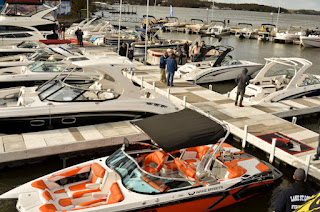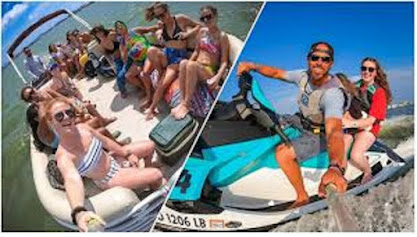Before you Hit the Water
Before all of your friend and family get ready to enjoy a day on the water. There is a few things you should have.
Some of this maybe common sense, but in the rush to get out on the water, something is always over looked.
Make sure you have required safety equipment on board.
Must-Have Safety Equipment for Your Boat
- Life jackets and wearable personal flotation devices (PFDs) An accessible, wearable PFD (Type I, II, or III) is a life jacket that must be available for each person on board. ...
- Throwable flotation devices. ...Throw cushion and or a life ring.
- Throw line
- Boat Hook
- Oar(s)
- Fire extinguishers. ...
- Visual signaling devices. ...i.e. mirror
- Sound signaling devices. such as a whistle or hand held air horn
- First Aid Kit
- Charts and maps
- Boat registration
- Set of tools or Boating tool kit
- Fuses
- Fenders (2 to 4)
- Charging cord for cell phone
I like to also make up a boating bag or go bag. This is a backpack or water resistance bag that will carry some of the above. As example Towels, water, extra glasses or Sun glasses, hat , sunscreen, snack, and ID.
The Go bag is something that you may never use, but all the items are in one container, it is easy to grab and go.
Next before leaving make a float plan.
A float plan is an overview of a boat excursion that can give authorities a head start in looking for a boater if he or she fails to reach his or her destination. A float plan document should include:
- Name, description and information about owner/operator.
- Vessel information: size, type, color, engine etc.
- Safety equipment on board.
- Trip details : departure date, return date, destination, proposed route, stops along the way etc.
- Name, description and info of passengers.
Leave the float plan with someone on land ( neighbor, harbor master, mother etc.) so if you fail to return or get to where you are going it will help family or first responders to find you.
Before heading out, check all fluid levels (not the beer in the cooler) fuel, oil, power steering, potable water, etc. Check voltage of all batteries. Nothing ruins the day on the water when your boat engine breaks down, you run out of gas. Make sure all Navigation and anchor lights are in working order.
Being prepared for the possibility, with these simple preventive measures will ensure a stress free boating day.





Comments
Post a Comment